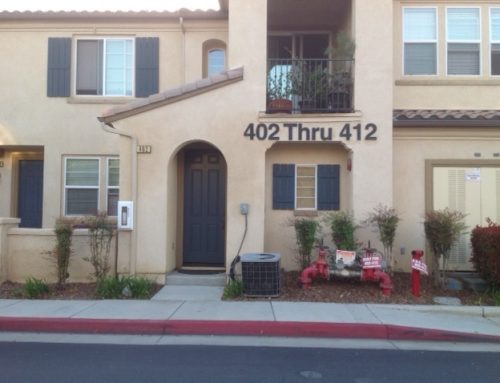How long does the Wildomar short sale process take?
A key element to the short sale timeline, and one that can affect the success and time periods mentioned in this article, is the proper selection of a real estate professional. Homeowners need to realize that not all real estate professionals are the same. A homeowner’s friend or acquaintance might have a real estate license but that does not mean that they are qualified to properly handle a short sale.
The short sale timeline has four stages. The first stage is Marketing Stage. During this stage a homeowner will secure the services of real estate professional to market their property and obtain an offer from a qualified buyer. The length of time needed for the Marketing Stage depends on the market. There is no doubt that a homeowner will receive offers from investors attempting to get the homeowner to accept a low ball offer significantly below the fair market value of the property. These offers should be avoided unless absolutely necessary as the lender is surely going to question whether the low ball offer is representative of the fair market value of the property. A prudent real estate agent will hold off advising his client to accept such an offer and, instead, continue marketing the property in an effort to obtain a closer to market value offer. Many buyers in today’s market are FHA and VA buyers. FHA and VA Buyers can present a challenge to homes that are poor or worn condition.
When a FHA or VA buyer attempts to buy a home an appraisal has to be done and the appraiser needs to make sure that the house meets the FHA and VA criteria. If not, then repairs must be done in order for the lender to grant the loan. Sellers attempting a short sale either don’t have the funds to repair their property or continue to put money into a home they are upside down. VA loans also have an issue related to NON-ALLOWABLE VA expenses that the buyer is prohibited from paying. This requirement means that the net recovery to the lender with a VA buyer will be less than the same buyer obtaining a FHA loan. I am not advocating that sellers steer away from VA loans but the real estate agent needs to be aware of this nuance when helping a homeowner decide which offer to accept. With that being said, I have been successful numerous times with short sales and VA buyers. All of this is relevant because it demonstrates that the marketing phase is complex and could take some time. I would say that the normal marketing time for a short sale from signing of the listing agreement until an offer is accepted by the homeowner in today’s seller’s market to be around 7-14 days. Of course a homeowner might receive an acceptable offer 2 days after listing the property.
The second phase of the Short Sale timeline is the Submission Stage. The length of time needed for the Submission Stage depends on your lender. Some lenders have more fluid short sale departments and processes than others. For example, Chase and now Bank of America are two of the more efficient lenders and, typically, they will review and process short sale requests much faster than lenders.
During the Submission Stage the lender will require the real estate agent to submit a short sale request, financial worksheet, hardship letter, supporting financial documentation, listing agreement, borrower’s authorization forms, the accepted offer, an estimated HUD1, a pre-approval letter for the buyer, proof of funds, etc. The Submission Stage is very document heavy and will require that a real estate agent be diligent in responding to requests from the lender. The lender may frequently ask for additional information or revisions to the HUD1. How a real estate agent handles the Submission Stage is critical to the length of time that the short sale application remains in the Submission Stage as well as to the overall success of the short sale. The Submission Stage can take no more than 14-30 days depending on the lender.
Once the lender has received all of the documentation needed to satisfy the requirements of the Submission Stage, the Negotiation Stage begins. During the Negotiation Stage the lender will order internal pieces of information needed for the lender to be able to review the offer accepted by the seller. The lender will order a 3rd party valuation of the property either in the form of a Broker Price Opinion (BPO) or the lender will order an appraisal. The goal of the lender is to obtain a 3rd party opinion as to the fair market value of the property. Once the valuation is complete the lender can then review the offer to see if it is has a chance of being accepted by the investor on the loan. If the lender thinks that the offer is too low or if the lender is unwilling to pay for charges listed on the HUD1, the lender will issue a counter offer to the real estate agent.
The real estate agent then contacts the buyer’s agent and the negotiations begin. The seller has very little to do with the final outcome as the real issue is obtaining an offer from the Buyer that the lender will accept. Once a price and HUD1 have been agreed upon the lender will send the file to the investor to obtain final approval. Once final approval is obtained the lender will issue an approval letter (see my website for examples of what a short sale acceptance letter looks like) and the short sale will advance to the next stage. The Negotiation Stage can take anywhere from 2 weeks to 2 months. However, I would say the average time is around 30 days.
The final stage of the short sale timeline is the Closing Stage. The Closing Stage is the normal escrow period that most homeowners are familiar with. The Closing Stage is typically 30-45 days and involves inspections, appraisals, disclosures and escrow paperwork. The average time for the Closing Stage is 40 days.
From beginning to end the average short sale timeline will take between 4-5 months from signing the listing agreement to close of escrow. Of course there are always exceptions and the process could be shorter or longer.














Leave A Comment